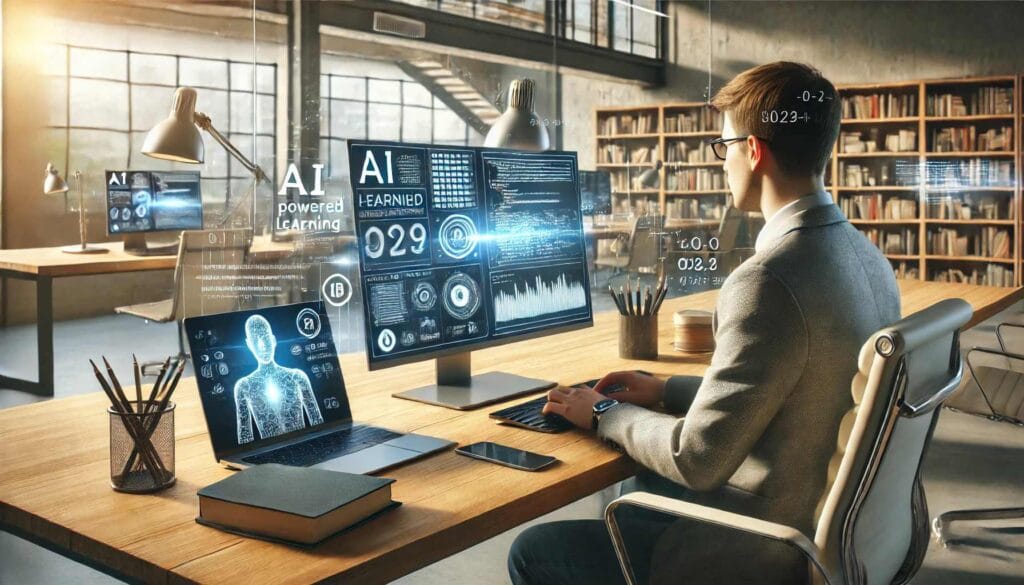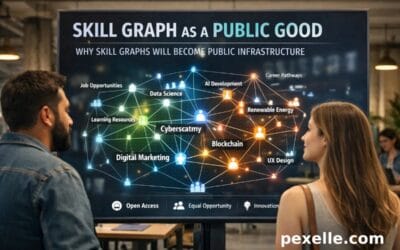The Impact of Artificial Intelligence on Learning Different Skills

Artificial Intelligence (AI) is transforming the way we approach education and skill development. The rapid advancement of AI technologies is not only reshaping industries but also enhancing the way individuals learn and acquire new skills. From personalized learning experiences to adaptive systems that cater to specific learning needs, AI is becoming a powerful tool in the education sector.
1. Personalized Learning and Skill Development
One of the most significant impacts of AI on learning is its ability to offer personalized learning experiences. Traditional education systems often follow a one-size-fits-all approach, which can leave some students behind while others are not challenged enough. AI, on the other hand, can analyze a student’s strengths, weaknesses, and learning pace, and provide tailored recommendations or resources. For instance, AI-powered platforms like Duolingo or Khan Academy offer personalized learning paths that adapt as students progress.
This personalized approach helps learners focus on areas where they need the most improvement, allowing for more efficient learning and mastery of skills. Additionally, AI can automate repetitive tasks, giving learners more time to engage with challenging content.
2. Adaptive Learning Systems
AI has introduced the concept of adaptive learning, which allows educational platforms and applications to adjust content delivery based on a learner’s performance in real-time. Adaptive learning systems use data to identify which topics or skills a learner is struggling with and adjust the curriculum to provide more practice or support in those areas.
Such systems are being used in various fields, including language learning, mathematics, and even professional skills training. For example, AI tools can assist in developing soft skills such as communication, leadership, and problem-solving by offering simulations and real-time feedback, helping learners hone these vital skills in practical scenarios.
3. Access to Global Learning Resources
AI is also democratizing education by providing learners worldwide with access to high-quality resources. Educational apps and platforms powered by AI can translate content into different languages, making learning materials accessible to a global audience. Moreover, AI-enabled platforms often offer real-time feedback and assistance, helping learners around the world acquire new skills regardless of their location.
AI-driven recommendations can also suggest relevant courses, books, videos, and online tutorials based on individual preferences, making it easier for learners to discover new skills and knowledge in areas they may not have initially considered.
4. Enhanced Training in the Workplace
AI is also transforming skill acquisition in the workplace, enabling employees to upskill and reskill in real time. In industries such as healthcare, manufacturing, and customer service, AI-based training programs provide employees with simulations and hands-on experiences that mirror real-world scenarios. This allows workers to practice new skills in a safe environment before applying them in their jobs.
Furthermore, AI tools can track employee progress and provide feedback, ensuring that they are gaining the necessary expertise to succeed in their roles. This results in a more efficient, cost-effective way of learning compared to traditional classroom-based training.
5. The Future of AI and Skill Acquisition
The future of AI in skill development is incredibly promising. As AI technologies continue to evolve, they will likely offer even more sophisticated learning solutions. Virtual reality (VR) and augmented reality (AR) powered by AI will make learning experiences even more immersive, providing learners with hands-on opportunities to develop skills in simulated environments.
Moreover, AI could play a pivotal role in fostering lifelong learning. As industries continue to evolve, the need for constant skill upgrades will increase, and AI could be the key to facilitating continuous learning throughout a person’s career.
Conclusion
AI is revolutionizing how we learn and acquire new skills. From personalized learning paths to adaptive systems and global access to resources, AI is making education more efficient, accessible, and inclusive. As we look to the future, AI will likely continue to play a central role in shaping the way we develop the skills necessary for success in the modern world.
Source : Medium.com




